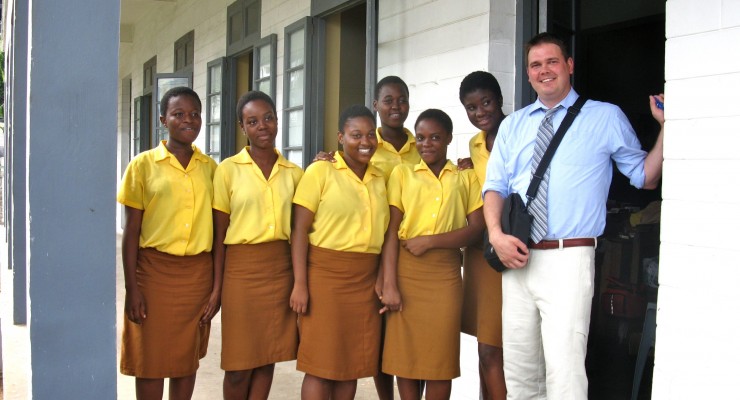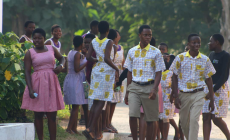All SHS Students to be screened for Ebola symptoms
- Posted on
- Comment
 All senior high school students, especially those in boarding houses, will be screened for symptoms of Ebola when they return to school.
All senior high school students, especially those in boarding houses, will be screened for symptoms of Ebola when they return to school.
Each school is expected to receive screening kits from the Ministry of Health through School Health Education Programme (SHEP) coordinators today.
Mr Samuel Ofori-Adjei, the National President of the Conference of Heads of Assisted Secondary Schools (CHASS), made this known to the Daily Graphic after a meeting of school heads in the Greater Accra Region Tuesday.
All public SHSs throughout the country will reopen on Monday, September 15, 2014, for the new academic yea.
“As we speak, some schools have made contingency measures by creating screening centres in dining and assembly halls. When the students arrive, they will be screened before they are allowed to enter their dormitories,” Mr Ofori-Adjei said.
“We are not to cause panic situations by saying because somebody has a temperature of say 38.5 degrees Celsius, then it is Ebola. The symptoms are many and we have been advised that when we detect any, we should quickly call a health official,” he said.
Concerns about the possibility of the disease spreading through students recently heightened in Senegal where a Senegalese student in Guinea took the disease to his home country.
To prevent that situation in Ghana, Mr Ofori-Adjei said, various school heads already knew the international students in their schools, hence when they arrived, apart from the screening, they would keep close eyes on them in order to take the appropriate action should the need arise.
Apart from the screening, he said, schools had posters and fliers that would be posted on the various campuses to continuously remind the students, teachers and non-teaching staff about the disease.
“Education on the disease should not be a one-off thing because Ebola is a recurrent disease and it happened somewhere, went into hibernation and has come back. So we have to continuously prevent it instead of allowing it to come and then use panic measures to control it.
School fees
On the school fees that had provoked debate about the ability of parents to pay, given the prevailing economic condition in the country, he said CHASS had been part of the process but had some concerns about burdening parents with some items that could be spread throughout the academic year instead of piling them on bills for the first term.
According to the approved fees released by the Ghana Education Service (GES) for the 2014/2015 academic year for students in all government-assisted senior high and technical schools, fresh students in boarding houses will pay GH¢668.50 each, while their day counterparts will be paying GH¢355.50.
The amount include GH¢175 for school uniform and clothing for both boarding and day students, approved teaching and learning support fees and Parent-Teacher Association (PTA) levies.
For continuing students, fees approved payable per term is GH¢385 for boarding students and GH¢73 for the day students.
Commenting on the fees, Mr Ofori-Adjei said items, including supplementary reading materials and utility bills, should be spread throughout the academic year to reduce the burden on parents.
“There are certain schools that have standby generators and others are doing things to enhance teaching and learning. We ask for a certain leeway for such schools but it should not be abused so that there would not be too much pressure for the payment of everything at once. This makes it difficult,” he said.
That notwithstanding, he said, sometimes certain items needed not be postponed at the expense of the students since it affected students at the end of the day.
“Those activities that are time-bound we must not postpone because if we do, we are just postponing the problem, and this reflects in the results and the schools and teachers are blamed,” Mr Ofori-Adjei said.










 (Selorm) |
(Selorm) |  (Nana Kwesi)
(Nana Kwesi)